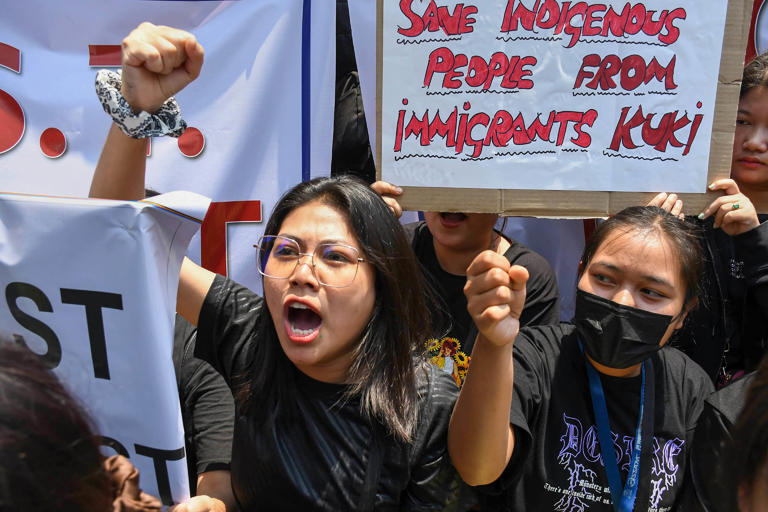The northeastern state of Manipur is rocked by violent clashes between members of the tribal Kuki and Meitei ethnic groups, leaving over 50 people dead and over 260 hospitalized.
Earlier this week, the state’s governor, Anusuiya Uikey, issued “shoot-at-sight” orders in an effort to bring the situation under control. The orders were authorized for extreme situations where all forms of persuasion, warning, reasonable force, etc. were tried and failed.
Indian army troops and the Assam Rifles have been deployed in the area and a mobile internet blockade is in force. The Army reports that over 23,000 civilians have fled the fighting, with many seeking refuge in military bases and garrisons.
Union Home Minister Amit Shah has finally broken his silence on the issue. Speaking exclusively to India Today/Aaj Tak, Shah said that the situation is under control as the curfew remains in force.
Shah appealed to the people to maintain peace while assuring them that the Manipur government will consult all stakeholders before taking any decision on the matter of Scheduled Tribe-status for the Meitei community.
The unrest in Manipur erupted on May 3 after a protest march organized by the Kuki tribal group sparked clashes with the non-tribal Meitei community.

The march was called to oppose the recent Manipur High Court order, which had asked the state government to send a recommendation to the Centre regarding the demand to include the majority and predominantly Hindu Meitei community in the Scheduled Tribes (STs) list.
Also Read: IRS Officer killed, 4 Others shot dead; What’s happening in Manipur?
Scheduled tribes are among the most socio-economically disadvantaged groups, and have historically been denied access to education and job opportunities. If the Meitei community is granted scheduled tribe status, other tribal groups say they fear they will not have a fair chance for jobs and other benefits.
Meanwhile, the issue of granting Scheduled Tribe-status to the Meitei community remains contentious, with many t arguing that it would provide non-tribal Mieties with greater access to education and job opportunities, giving them an unfair advantage over other tribal groups in the state.
As the government continues to consult with stakeholders, it is important to find a solution that is both fair and equitable for all communities in Manipur.


